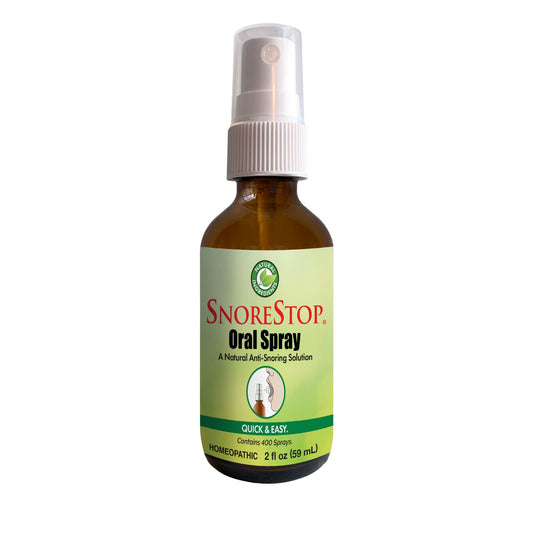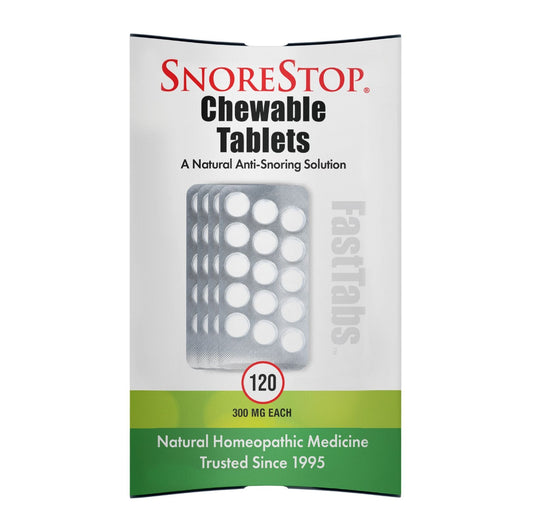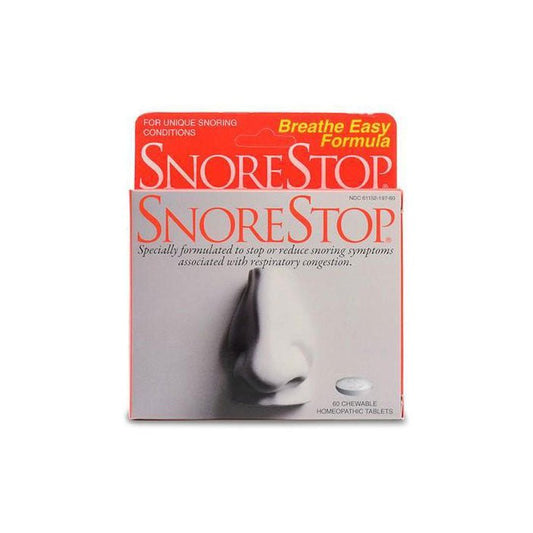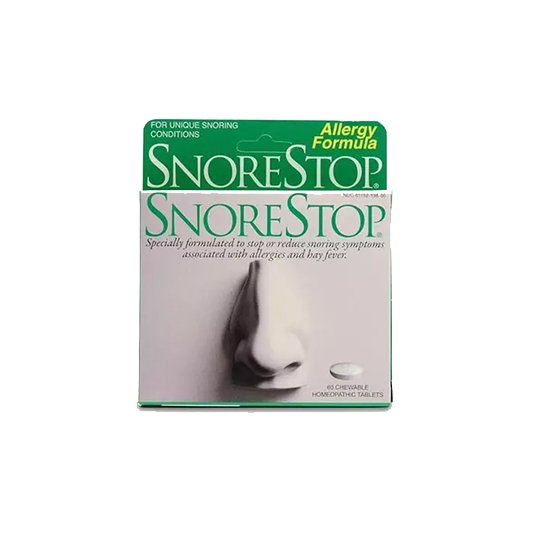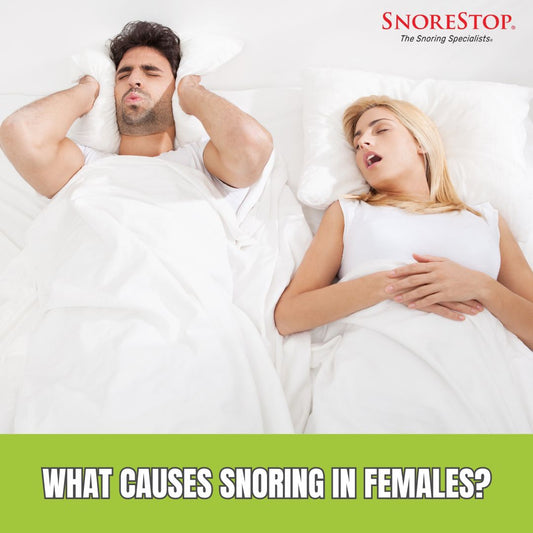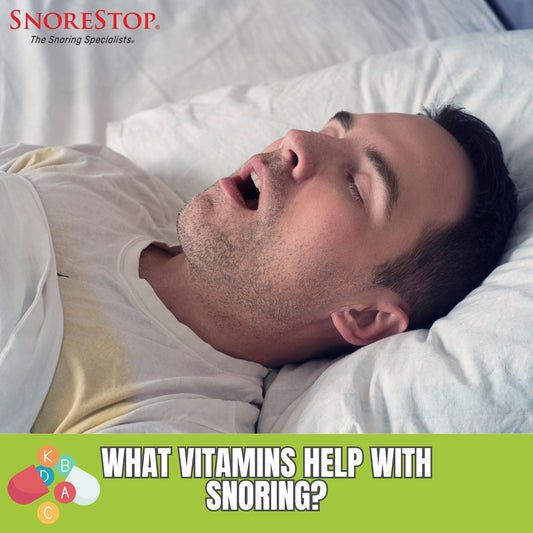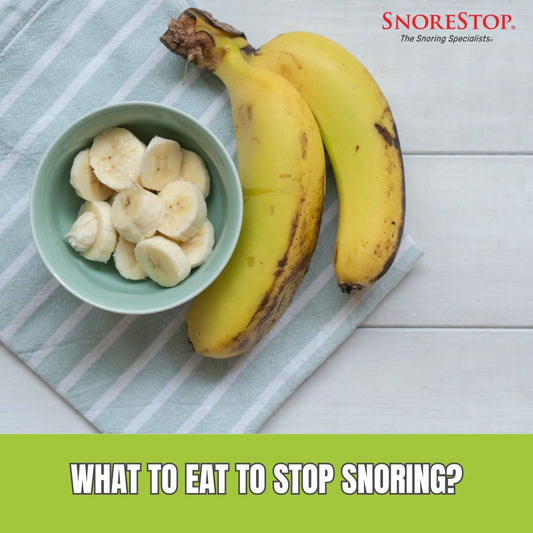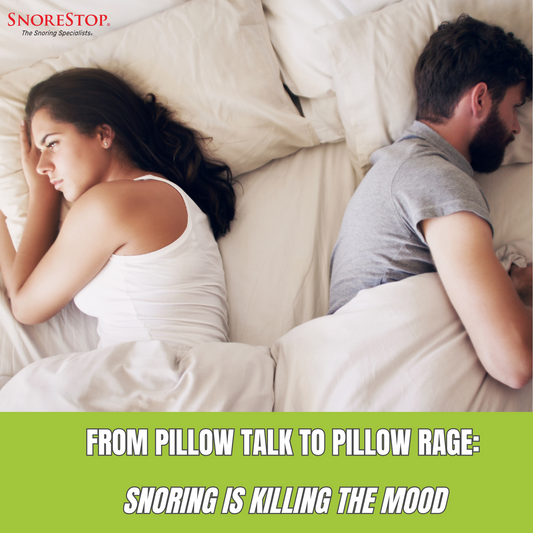
The most common cause of snoring is swollen or collapsed soft tissue in one or more airway(s) in the mouth, nose or in the back of the throat. When air gets trapped in a blocked airway it can cause soft tissue to vibrate and produce the sound of snoring.
Other causes of snoring are common cold symptoms, allergies, obesity, mouth and nose structure, sleeping position, and alcohol use.

How Do Snore Pills Work?

Are They Effective?

Other Products to Stop Snoring
There are other alternatives to snore pills you can use to help stop snoring. The marketplace is flooded with nasal strips, chin straps, devices, gadgets, pillows, and specialty beds but they tend to be expensive and cumbersome to wear all night long.
Anti-snoring Nasal Sprays

Nasal sprays treat nasal congestion, allergies, or common cold symptoms that can cause blocked nasal passages. Their active ingredients work in different ways, mainly by reducing inflammation in both nasal air passages to increase airflow in the nose so you can breathe better and sleep better at night.
Nasal Strips
These are mainly used to treat nasal congestion or people who have sleeping problems caused by snoring. They work by opening up the nasal passages, which should decrease resistance in your breathing. Also, they ease your breathing during sleep.
You place nasal strips on the outside of your nose like a band-aid, and you should not feel them when they're in place. They may stop working after two to four hours as they come off by themselves in the middle of the night or because you pull them off while sleeping. You can also replace them when you wake up or if they fall off.
Nasal strips are also great for active people as you can wear them underneath a mask or helmet and do not interfere with breathing during physical activities.
They are available over the counter, but some people cannot use them because of allergies to the adhesive used in the strips. People who have respiratory problems, nasal polyps, open wounds in their noses, or sinus infections should avoid using them.
Dental Appliances
These devices for the mouth stop snoring by forcing your airways open by holding your jaw in a certain position. You place the mouth guard over the upper and lower teeth to hold them apart slightly and force your lower jaw forward. To do this, you might need to first boil the mouth guard in water before using them for a custom fit.
Devices that hold the lower jaw forward can be effective for people with partial airway obstruction. It ensures eliminating any anatomical blockage that causes narrowing or closing of the throat, allowing air to flow freely into the lungs.
Some people might feel uncomfortable using this product because it feels heavy in their mouth or makes breathing difficult, or keeps waking them up during the night. Others find these products ineffective, especially if they have enormous tongues, tiny mouths, or are shallow breathers.
Nasal Dilators
There are other products to help you stop snoring that you can use without a whole lot of effort. Nasal dilators are small, flexible rubber inserts that you wear in your nose to help you stop snoring. These inserts work by forcing the nasal passages open and allowing air to flow more freely through your nostrils so that you can breathe easy through the night while you are sleeping.
These are available over the counter, but not everyone might use them as they may cause allergies, breathing discomfort, or fall out during sleep. The nasal dilators specifically target the nose for nasal-based snoring so it does not help if your snoring occurs in the mouth or in the back of the throat.
Surgery
Surgery is the most invasive solution that does not require you to use any products at all. It involves changing the throat position by adding more structures to enlarge it. Therefore, it reduces the amount of resistance in your breathing and eases snoring problems. Surgery can be dangerous and does not guarantee to alleviate the problem. It carries risks like pain, soreness, infection, and physical discomfort.
Conclusion
There are many options to help you deal with snoring, snore pills is just one of them. The most important thing to consider is to first - rule out sleep apnea or any anatomical issue that may be causing your snoring. Second, test your snoring. When you discover where your snoring occurs, it will make it easier for you to find a solution. You can also try non-medical solutions such as weight loss, changing sleeping positions, stop alcohol consumption, and snore pillows. Do not let snoring cause problems in your health or relationship with your partner when there are many solutions available.

